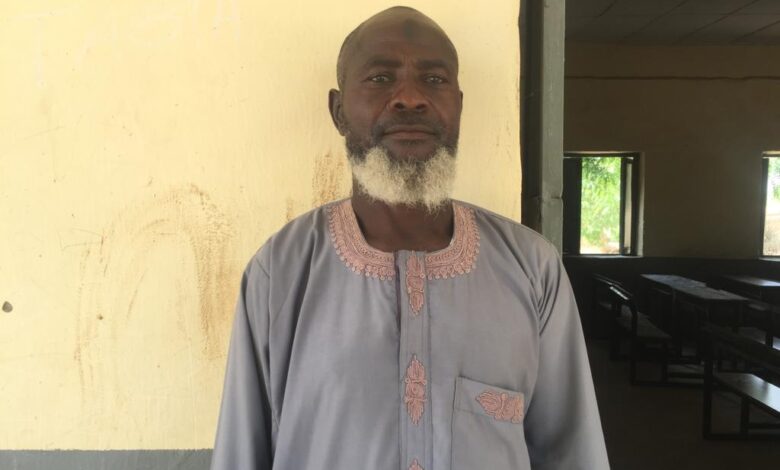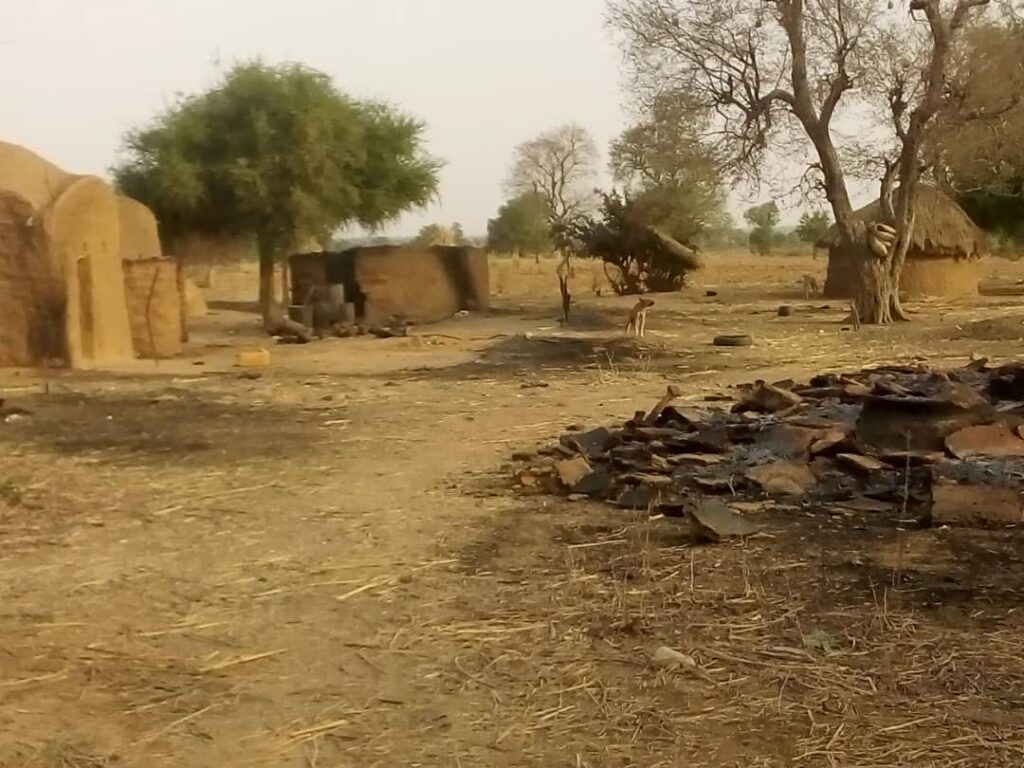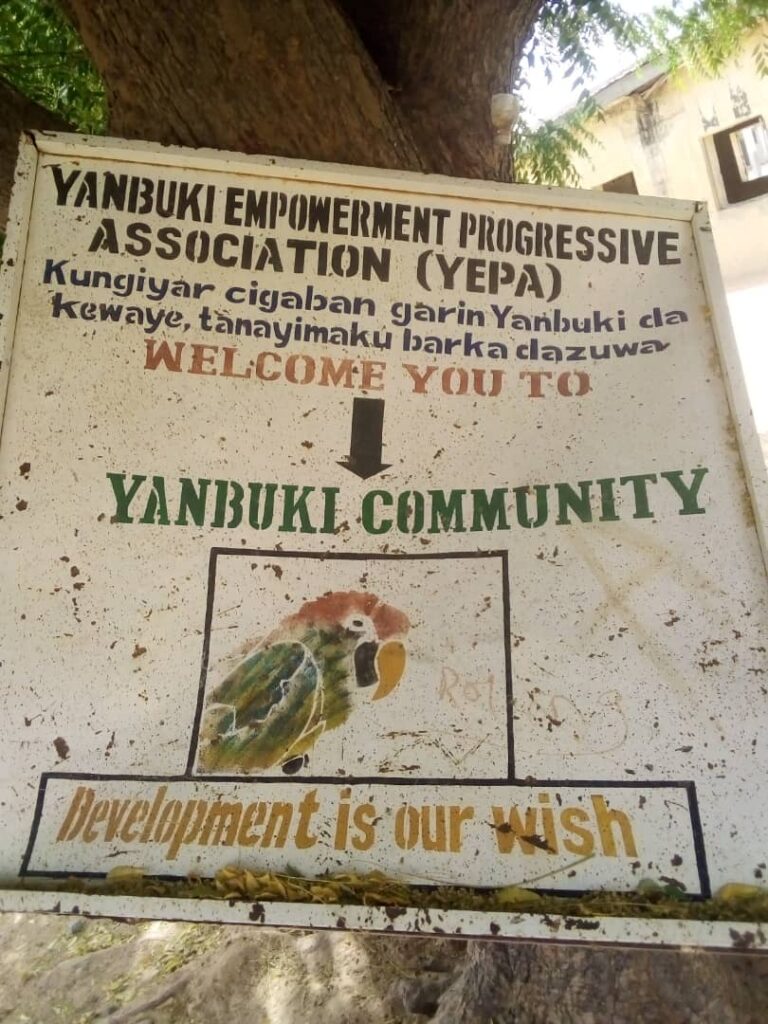Widowed By ‘Bandits’ (3): The Agony Of Losing One’s Wife To Terrorists
Men, who lost their wives to the activities of terror groups in Northwest Nigeria, share horrible accounts of the difficulties they face in the absence of their loved ones.

The blazing midday sun shone relentlessly on our reporter as he navigated through the dusty, bumpy road leading to Yanbuki. The sleepy village in the Zurmi Local Government Area (LGA) of Zamfara, Northwest Nigeria, is a metaphorical graveyard without basic amenities such as electricity and roads.
Though it was high noon, there was nobody travelling on the route, which has in the last few months been rocked by terrorists, often described locally as bandits.
“You are welcome to our village. I hope you will return home safely and not be prey to the bandits,” Zakariyah Adam, the village’s Chief Imam, told HumAngle after a journey that lasted over two hours from Gusau, the state capital. “I was praying in the mosque to have you here safely because bandits have turned the routes leading here to their point of operation.”
Explaining the village’s experience with the terror groups, Zakariyah said they stole their herds, looted and burned homes, and assaulted their women in multiple attacks witnessed in the last seven months.
The most tragic event was the indiscriminate killing of over 30 villagers in their homes and farms. Since no security personnel came to their rescue, many have abandoned their homes to become displaced in neighbouring villages.
Zakariyah is one of those who have no place to run to. He was born and raised in the village and can think of nowhere else as home. For this reason, he joined others like him to pay a “protection levy” to the terror groups to end the attacks on their village.
Yanbuki and three other villages reportedly paid over ₦5 million to the terrorists in Dec. 2021 to avoid attacks yet many residents still live in fear.

A village of widowers
Zakariyah’s inability to protect his people against terror attacks has made him frustrated and despondent. “Our lives are tragedies,” he said bitterly.
“We’re all living in tragedies, because we may all end the same way if the banditry continues. I feel sad that I could not help my people when the terrorists were attacking us. They have guns but we don’t. The whole thing is quite hopeless. I lead a mosque and a village of widows. Homes with husbands have lost their wives and the ones with wives no longer have husbands. Our major crime is being Nigerians living in an ungoverned state.”
He told HumAngle that the village was peaceful and people hardly closed their doors at night until mid-2021 when terrorism became a threat to Yanbuki.

It started with the abduction of farmers on their farms, attacks on locals travelling to Yanbuki, and cattle rustling by the terrorists, all of which continued to put residents on tenterhooks. Despite authorities’ position against negotiating with terrorists to secure the release of abducted persons in the Northwest, families of those kidnapped in Yanbuki said they often paid huge sums through their noses.
By late last year, the village had become a home of widows and widowers after many people lost their spouses to different attacks.
“They came at different times of the day and night. They burnt our homes and vehicles bringing people from their farms. Many children in the village are either fatherless or motherless. Some have even lost both parents,” Zakariyah explained.
Mentally ill after wife’s death
Dressed in a loose pair of black trousers and tattered clothes, Azeez Aliyu was restless and desperate to get out of the room where he was locked. He had been there for two months, receiving treatment from a traditional physician who looks after mentally ill patients.
He was shedding tears profusely when HumAngle visited him. Two problems. He wanted to leave the confined space, and, if he couldn’t, he wanted to have access to his late wife. These two problems are difficult to solve because he became mentally ill after bandits killed his spouse. His relatives were also not willing to let him out so they could keep their eyes on him.
HumAngle learnt that he sometimes screams incoherently and acts irrationally. Unfortunately, such outbursts often earned him whipping from the trado-medical expert looking after him. His younger brother, Sanusi Aliyu, said Azeez’s predicament was a result of losing his wife, Saidat, to terrorists who invaded their village in Nov. 2021.
“He became mentally ill after bandits killed his wife last year. She was returning from the farm when they stormed the village. She tried to run for safety but could not. It was a terrible situation for my brother who had been married to his wife for nearly twenty years.”

He told HumAngle that the deceased had three children and he is currently playing the role of their father.
“Even though the bandits have stopped us from farming because of the high cost of tax they are demanding, I engage in a labour job to take care of the three children. My brother is now a widower and his children are motherless because there were no security personnel to help us combat insecurity in our village,” he added.
‘How my wife was killed’
Abdulrazaq Buhari’s wife, Maina, was only 20 years old when she was killed, bringing a sudden end to their one-year-old marriage.

HumAngle learnt that Maina was breastfeeding her eight-month-old baby when the terrorists killed her in Oct. 2021.
“She was not the only person killed from her family. The terrorists who invaded our village killed my wife, Maina, her father, and her brother on the same day. She was breastfeeding our baby when they shot her dead. There were about 25 people who came to carry out the deadly operation. I missed my wife and our young son would grow without knowing who gave birth to him,” said a devastated Abdulrazaq, 27, who works as a motorcycle mechanic.

Speaking further, he said his late wife always called him with delight whenever he was at work and anytime he was not at home. “Such is life and I’ve got no choice than to accept my fate. I have never left home without getting her blessing in the morning but no one is doing that for me again because I am finding it difficult to remarry.”
He, however, said his grandmother is helping to raise the infant Maina left behind. When he gets old, he might tell him the bitter story of how terrorists killed his mother when he was being breastfed.
This is the final part of our Widowed by ‘Bandits’ series. You can read the first and second parts here.
Support Our Journalism
There are millions of ordinary people affected by conflict in Africa whose stories are missing in the mainstream media. HumAngle is determined to tell those challenging and under-reported stories, hoping that the people impacted by these conflicts will find the safety and security they deserve.
To ensure that we continue to provide public service coverage, we have a small favour to ask you. We want you to be part of our journalistic endeavour by contributing a token to us.
Your donation will further promote a robust, free, and independent media.
Donate HereStay Closer To The Stories That Matter




